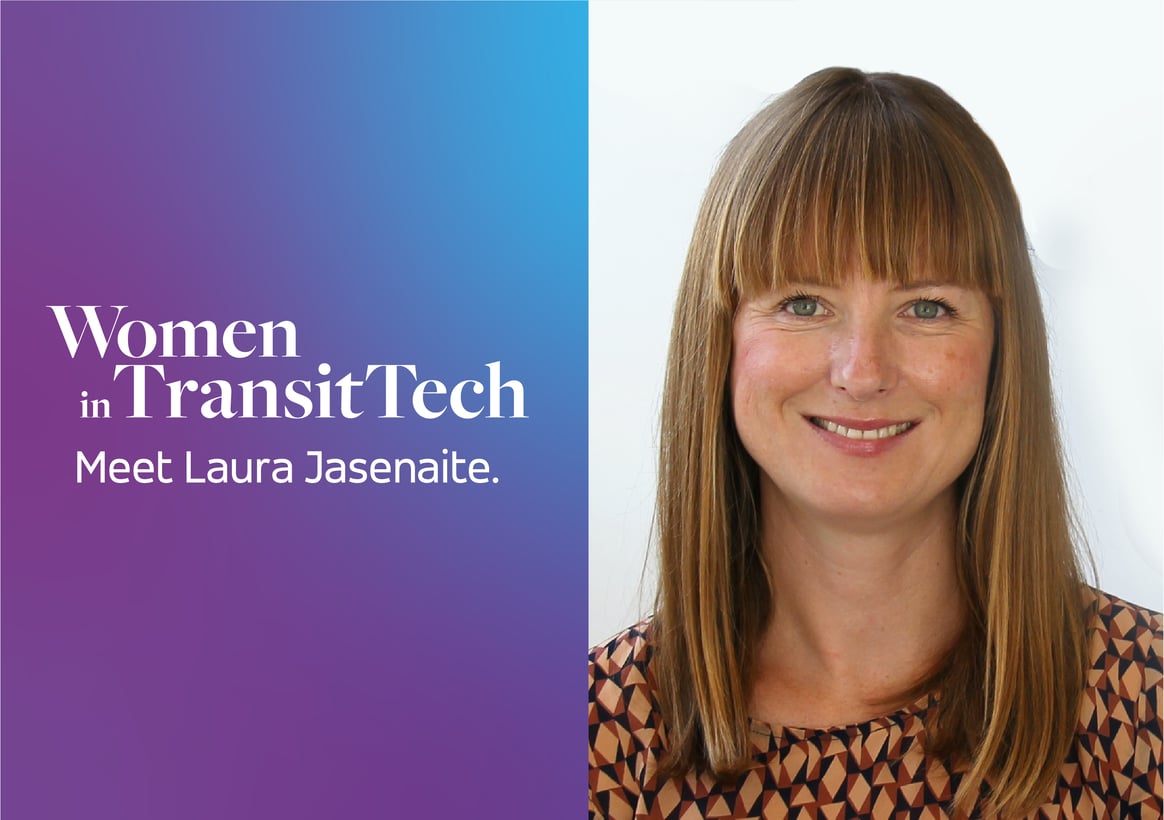Challenging the status quo takes diligence, determination, and vision — especially when it comes to an industry that hasn’t seen a seismic shift since the automobile was invented. And, as it turns out, it’s often women who choose to challenge these norms. In honor of International Women’s Day and throughout the month of March, Via is proud to profile a number of changemakers driving real innovation in their communities and inspiring their peers. Enjoy the story below, and then check out the rest of the series here.
As the CEO of Cool, the first pooled ride-hailing service in Malta, Laura Jasenaite is passionate about developing customer-centric products and services that make people’s lives easier. With extensive marketing and business development experience in the food, technology, and mobility industries, Laura prides herself on building successful brands, products and services. She is known for her strategic and focused approach to customer acquisition and retention strategies and her ability to build high-performing teams — optimizing internal operations and customer service. She holds an MBA from the University of Bradford and a Bachelor of Science from Vilnius University. Before her current CEO position, she was CCO of GoTo — Malta’s first car-sharing service.
What did 10-year-old Laura want to be when she grew up? How did you evolve from there to your current position in transportation? When I was ten years old, I loved playing shop. I was a shop assistant selling various goods to my younger sister. At that time I wanted to work in a shop. I am a marketer by profession. I was always interested in changing customer behavior — curious to learn about customers' wants and needs, and then observe how those change due to developments in technology.
Mobility is so influenced by tech, so it’s a very exciting sector to be part of. You can see the way transport is developing today and how it is reacting to data developments and mobile technology. I am a firm believer that transport, as we know it today, won’t exist in the future, and it’s that fast-paced progression that really enticed me to the industry.
What do you think are the most important qualities in a leader? Are there any leaders, in particular, you look up to? I believe there are three critical qualities that every leader should possess. Firstly is true enthusiasm for a business, its product, or its service. Sincere enthusiasm is contagious — it drives continuous improvement and innovation.
Secondly, leaders must be skilled communicators so they can paint the company's vision and motivate people. Lastly, and most importantly, is the ability to empower teams to act autonomously so the organization can leverage its full intelligence. Empowered employees are not only motivated and fulfilled, they are more capable and make decisions that are best for the company and its customers.
What are the big transit challenges in your community that your team is solving with innovative mobility projects? Car ownership in Malta is very high given the very small size of the islands. Seventy-five percent of commuting journeys are completed by private vehicles with an average of 1.25 persons per car on a typical journey. Increasing population and economic growth in recent years led to rising congestion levels and lack of parking. The average commuter is spending approximately one hour every week in gridlock.
At Cool Ride-Pooling, our goal is to reduce congestion by moving people from private single-occupancy cars into shared vehicles. I am happy to hear customers saying that Cool is what Malta needed. It makes my day when they say that they ditched their cars because of Cool. This is our ultimate goal. Despite the global pandemic, in 2020 Cool has made a significant positive environmental impact by lowering levels of pollution, mitigating road congestion, and reducing parking infrastructure demand. In one year, we had a reduction of some one million vehicle kilometers which would have otherwise been traveled by single-occupancy vehicles.
In your view, what’s the biggest challenge the transportation industry as a whole will have to tackle in the next 2-5 years? The ultimate goal is to provide sustainable and environmentally-friendly transport options and to give people the freedom to move around in any way possible, with the flexibility to adjust to their changing situation and needs. Efficient use of big data is needed to offer people a seamless multimodal experience. Infrastructures need to be prepared to accommodate electric vehicle charging and self-driving cars in the medium to long-term. The automotive industry will need to change its business model from selling vehicles to providing services which will require cultural and infrastructure change.
Tell us about a defining moment in your professional life that has helped guide you on your path. Like many women, I didn't believe in my abilities and lacked self-confidence. However, I was lucky to work with supportive managers. I was encouraged to take up challenges, which made me grow professionally. Now I believe that you can choose to achieve anything you wan t. I take full responsibility for my own growth, and I am more comfortable taking risks and going out of my comfort zone.
And finally, what drives you? (Pun intended!) I want to make an impact by saving people’s time. Why should anyone waste an hour in traffic?




